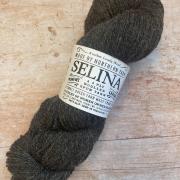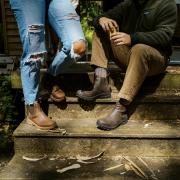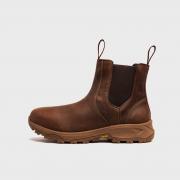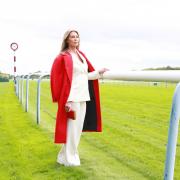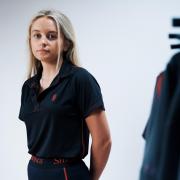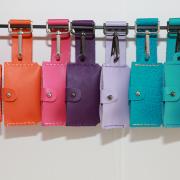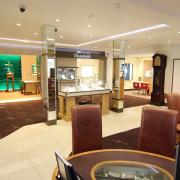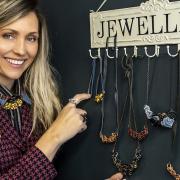Trainers with a suit? Don’t faint, sir, this Lancashire heritage brand is ahead of the pack when it comes to cool shoes, writes Rebekka O’Grady

It was firm with its roots in the grey days of post-war austerity when Olympic athletes had ration books rather than go-faster superfoods. More than 60 decades later, it continues to make sport shoes - only today they can be seen on the trendy as well as the track stars.
Norman Walsh began his career in 1945 at the tender age of 14 working for a firm called J.W. Foster and Sons. His prodigious talent was soon spotted and he was commissioned to make running shoes for the 1948 British Olympic team.
The company changed its name to Reebok in 1958 and three years later Norman left to establish his own brand, Norman Walsh Footwear, a company that produced an incredible diversity of sports footwear from rugby, football, track and field, wrestling, boxing and fell-running. And it just keeps on running.
The firm is now in the hands of Jon Crompton, the managing director, and his brother, Dennis. The brothers have worn Norman Walsh shoes since they were kids so they jumped at the chance to take the reins when Norman retired in 1996.

Jon’s son, Jason, joined the company as a manufacturing apprentice, continuing the family tradition. Now 18, Jason has worked his way up to become the creative force behind Norman Walsh. ‘I started working at Walsh soon after finishing school,’ he said. ‘I quickly picked up the skills and knowledge of how to make the shoes and this led on to learning more about the creative side.
‘I am now in control of the design, marketing and social media. Many designs you see in the new and upcoming Casual Heritage collections have been influenced by me, which is exciting. From the construction to the colour, what they look like comes down to me. It is very rewarding to see people wearing them.’
Recently, the retro-style footwear company has seen a boost in national and international interest. Earlier this year, the brand even had an exhibition at the Fashion and Textile Museum in London, featuring a diverse collection of vintage shoes, photographs, archive correspondence and brochures.
Combined with manufacturing details and fashion images, the exhibition explored the history of these Lancashire-made trainers and gave an exclusive insight on the historic relationship between sport and style.

It coincided with a talk hosted by celebrated British tailor, Timothy Everest, who led a panel discussion on British style and men’s sports footwear. Members of the panel talked about a ‘clued-up community who crave time-honoured craft alongside modern individuality and a sense of idiosyncratic, and even dogged Britishness.’ Quite a mouthful for a small firm in Bolton.
The Mayfair tailor added: ‘Walsh trainers are a quintessentially British brand whose retro styling render them highly covetable. I think it’s perfectly acceptable to wear trainers with a suit - as long as it’s the right pair of no-nonsense trainers. Walsh’s Lostock black-on-blacks in nappa leather, for instance, are perfect.’
This surge in appeal for retro running shoes, partly fuelled by the 2012 London Olympics, has resulted in the brand exporting shoes from Bolton to the capital and even globally.
‘It is shocking for me to see a household Bolton brand turn into an international, worldwide brand,’ said Jason. ‘We have recently shipped shoes to Korea, and that has been the biggest shock for me.
‘They love the ‘Made in England’ theme. This is our first season working with them, and we are hoping it will last quite a while.’
How have the Crompton family managed to sustain that classic style?
‘We take our inspiration from the heritage and history of Norman Walsh. Our archive of vintage footwear dates back to 1948, with over 100 styles. I’m often found searching through these, gathering inspiration to bring back the best of Walsh to 2014. Along with our own interests and what the customer wants, we combine the three together to create the looks and styles you see today.’
This heritage is not only reflected in the style of shoe, but also in the manufacturing process. Some of the original patterns and knives are still used, so that the shoes look the same as when Norman produced them. ‘You can look at other brands and see their replicas and remakes of heritage styles, but they are just a silhouette of the shoe. Ours are pure to the original Norman Walsh design and we see the process through, straight from concept to finish.’
In keeping with tradition, the Bolton factory is still very much a part of the community.
‘Our factory is small, and we are proud of how the shoes are made. Some employees have been here for over 30 years. Norman Walsh really is a family business, and we are proud of our Lancastrian roots and don’t want to let that go.’




